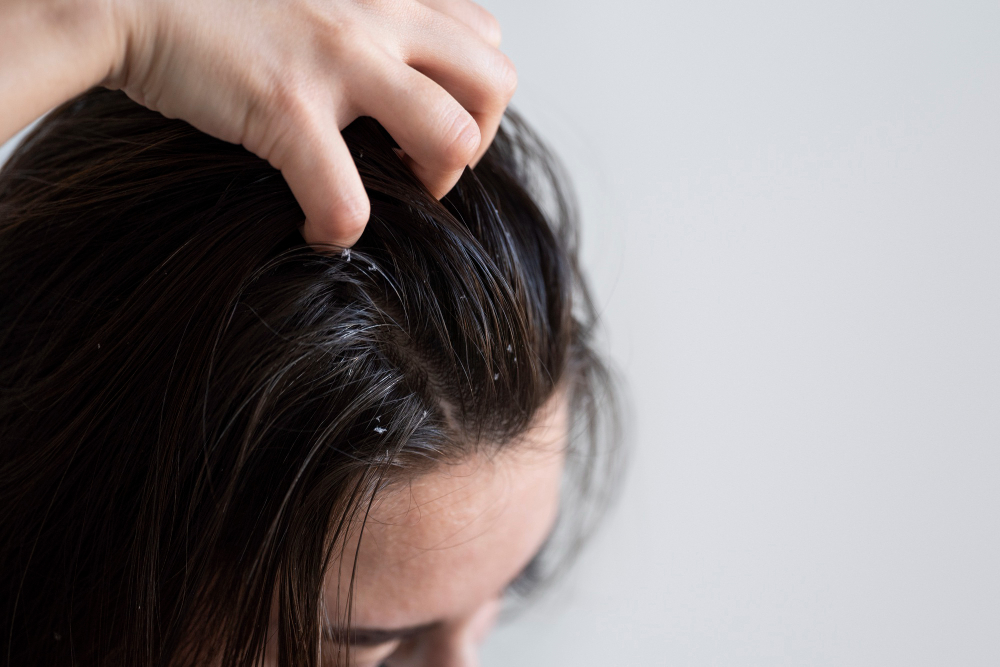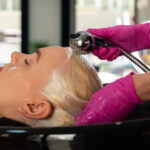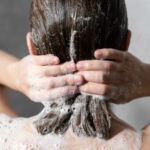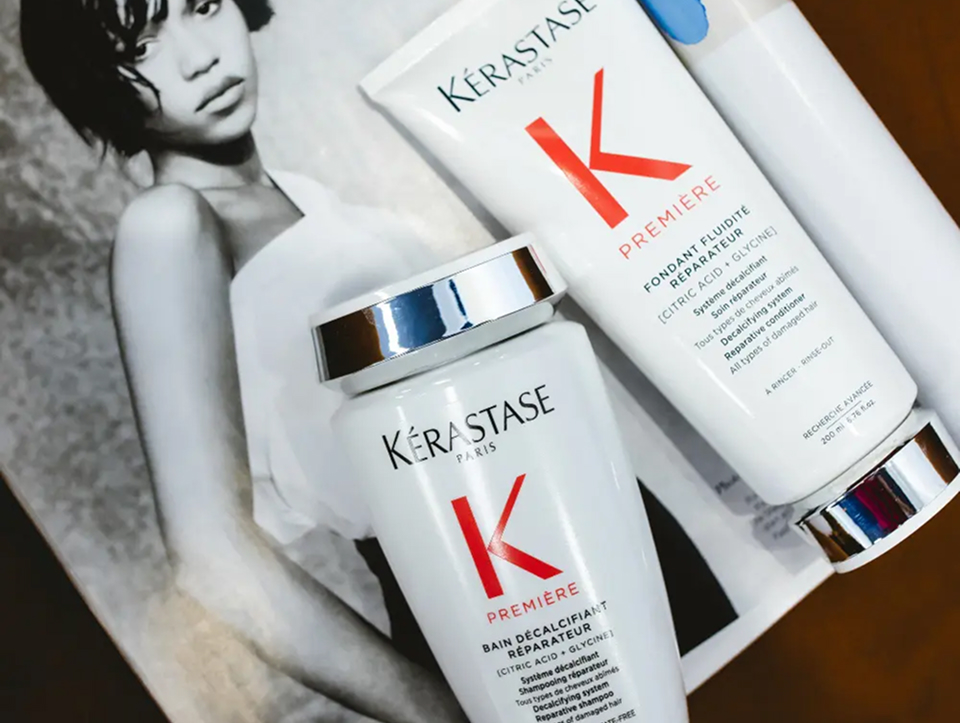There is nothing more frustrating than feeling self-conscious or even uncomfortable when you notice you have dandruff.
You may have tried different products to eliminate it or are looking for a solution. You’ve arrived at the right place, and we have the ultimate dandruff control guide right here.
The fascinating thing is that dandruff can originate from a dry scalp or other issues, such as fungus, your diet, or improper shampooing.
What is Dandruff?

It’s important to remember that dandruff is a common scalp condition that affects everyone at some point. But what causes dandruff, and are there different types?
What Causes a Flaky Scalp?
Many factors can cause dandruff, and pinpointing the cause of a flaky, itchy scalp is difficult. But you can look at some of these culprits:
- You are noticing fluid from the sebaceous glands on your scalp.
- Noticing a fungus forming on the skin surface.
- Malssezia, a yeast, can irritate your scalp, leading to excess skin cell growth.
- You do not wash your hair often, resulting in skin cells accumulating and forming flakes that itch.
- A dry scalp can develop into dandruff if you wash your hair daily.
- You brush your hair too much, creating friction on a sensitive scalp.
- Your scalp can experience an allergic reaction to the care products you use, or your diet may be lacking specific essential nutrients.
- Lastly, dandruff can form due to sun damage, excessive pressure from hats, or prolonged exposure to dirt and dust.
Dry Dandruff
A dry scalp and dry, flaky skin are characteristic of this condition. It begins as small, white flakes, accompanied by a mild itch or irritation. This type of dandruff is more likely to occur if you have dehydrated skin or use harsh shampoos.
Dry Dandruff Symptoms:
- White or yellowish flakes on the scalp
- Mild itching or irritation
- Dry, brittle hair
Oily Dandruff
Another common type of dandruff is oily dandruff, which occurs when the scalp produces excessive oil. The excess oil creates an environment for the growth of a fungus called Malassezia furfur.
Oily Dandruff Symptoms:
- Yellowish, greasy flakes on the scalp
- Intense itching
- Greasy hair
- Scalp redness or inflammation
Dos For Dandruff Control
You can prevent dandruff by incorporating a pre-shampoo treatment into your hair routine, or you can visit a salon for a professional scalp treatment to remove dandruff and flakes, resulting in a scalp detox.
Wash Your Hair Regularly
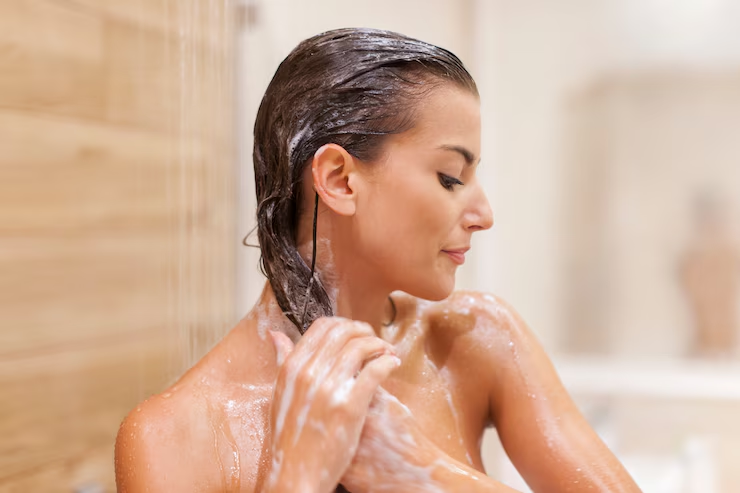
For dandruff management, washing your hair can help remove dead skin and excess oil. Not daily, but at least two to three times a week, can help balance cleanliness without removing the oils.
Choose The Right Shampoo
It helps to choose the right shampoo for dandruff prevention. We recommend a chemical-free dandruff treatment. Avoid shampoos with sulfates or harsh chemicals, as these chemicals can irritate your scalp further. Many sulfate-free shampoos are available, such as Neutrogena’s Scalp Therapy Anti-Dandruff Shampoo.
Hydration Treatments

Proper hydration is essential for maintaining scalp health, as it helps manage dryness and dandruff. Choosing the best hydration hair treatment nourishes your scalp and keeps it moisturized. Using products that nourish and moisturize your scalp will help reduce dandruff.
How to Use Moisturizing Treatments
Natural essential oils, such as aloe vera, are among the best scalp treatments for dry scalp and dandruff. Try an organic range, such as O’right, which offers natural dandruff solutions. Apply the product to your scalp to help with coverage and massage it into the scalp.
Don’ts For Dandruff Control
Several treatments are available for dandruff control, but you can also prevent the following. Remember, these are practical steps to manage your dandruff effectively.
Prevent Using Harsh Chemicals

Products containing parabens and sulfates can harm scalp health and exacerbate dandruff. The chemicals strip the natural oils from your scalp, leading to dryness and irritation. Prolonged use can promote dandruff and worsen its symptoms.
Choose a Natural Alternative
Choose chemical-free products to treat your dandruff. Products with natural ingredients are gentler on the scalp and provide long-term scalp health.
Avoid Over-Washing
Washing your hair often removes the oils your scalp needs to remain moisturized, leading to a dry scalp and dandruff. At the same time, overwashing can also stimulate oily dandruff as it attempts to offset the loss of oil, producing more sebum and causing an imbalance that complicates the issue.
How to Find The Right Balance
The crucial thing is to find a perfect balance between frequent and insufficient washing. We recommend washing your hair a few days apart and adjusting it based on your scalp’s needs.
Also, use gentle shampoos and conditioners with dandruff treatments, like a hydrating scalp product, worked into a scalp massage. When you find a balance, you can manage a dry scalp and prevent dandruff.
Dandruff Control Using Home Remedies
While we recommend consulting with one of our stylists at Häste Urban Hair Spa to address your dandruff, you can also try some effective home remedies.
Baking Soda

You can rub some baking soda into your scalp while in the shower and rinse it off after a few minutes.
Apple Cider Vinegar

Mix ¼ cup of water with ¼ cup of apple cider vinegar and apply to your hair. Leave it on for 15 minutes or an hour, then rinse it off. You can do this twice weekly.
Coconut Oil

Rub three to five teaspoons of the oil into the scalp and leave it on for an hour. Then, shampoo your hair to remove the coconut oil.
Lemon Juice

Rub two teaspoons of lemon juice into your scalp and rinse it off. Next, mix a cup of water with a teaspoon of lemon juice and work it into the scalp daily.
Olive Oil

Place ten drops of olive oil in your palms, rub them into your scalp, cover your head with a shower cap, and leave it on overnight. In the morning, stand in the shower and wash your hair with shampoo to rinse out the oil.
Aloe Vera

You can also rub aloe vera into your scalp before washing your hair. Before using any of these natural remedies, we recommend applying them to a small area of your skin for up to 24 hours to check if the product causes any allergies.
Dry Scalp vs. Dandruff
It is difficult to distinguish between dandruff and dry skin, as both appear similar, cause flakes, and can be itchy.
Still, dandruff belongs to the seborrheic dermatitis group, whereas a dry scalp is a sign that your scalp is losing a significant amount of water. Losing water can result from insufficient fluids or hair products that strip the scalp of natural oils.
Dry and cold climates can quickly cause dry scalps. To treat a dry scalp, it is recommended to switch to gentler hair care products with fewer additives.
Tips to Prevent Dandruff
- Firstly, to prevent dandruff, practice scalp hygiene by resisting the urge to scratch your scalp if it is itchy, as this increases irritation.
- Find a balance when shampooing your hair, and avoid using too many products that can irritate your scalp.
- Reduce your stress, as it can worsen the problem.
- Get enough fresh air, as it helps reduce the oil buildup on your scalp.
- Get a scalp massage to help prevent the symptoms of dandruff.
- Always brush your hair when it is damp, not wet, and never go to bed with wet hair.
- Also, wear a wide-brimmed hat to protect your head from the sun.
- Another helpful way to prevent dandruff is to deep condition your hair.
Wrap-Up: Dandruff Control
Dandruff can be a frustrating and embarrassing scalp condition, but it doesn’t have to be a constant battle. By understanding its causes, symptoms, and effective treatments, you can take control of your scalp health and achieve flake-free hair.
Remember, every scalp is unique, and what works for one person may not work for another. If you’re struggling with dandruff, try experimenting with different products and techniques to find the best solution for your specific needs.
At Häste Urban Hair Spa, our experienced stylists offer personalized advice and recommendations for controlling dandruff. Whether you’re looking for professional treatments, product recommendations, or lifestyle tips, we’re here to help you achieve healthy, flake-free hair.
Don’t let dandruff hold you back. Schedule a consultation with us today and take the first step towards a dandruff-free future.
FAQ
How can you remove dandruff fast?
For a mild case of dandruff, use a gentle shampoo or a medicated shampoo to reduce oil and skin cell buildup.
How often should I wash my hair if I have dandruff?
If you have dandruff, washing your hair 2-3 times per week is generally recommended to remove excess oil and flakes from your scalp. Overwashing can contribute to dandruff, so finding the right balance is essential. If dandruff persists, consult with a dermatologist for personalized advice and treatment.
What must I avoid with dandruff?
When dealing with dandruff, it’s best to avoid scratching your scalp excessively, as this can lead to skin irritation and potentially worsen the condition. Additionally, it is advisable to avoid using hair care products with harsh chemicals, as they can exacerbate dandruff. Furthermore, certain foods, such as those high in sugar and grease, may also contribute to dandruff for some individuals, so it may be beneficial to monitor your diet.
Does washing with hot water cause dandruff?
Washing your hair with hot water strips away natural oils from your scalp, leading to dryness and contributing to dandruff. Using lukewarm or cool water is generally recommended to help maintain a healthy scalp. A gentle anti-dandruff shampoo, along with other scalp care measures, can also help manage dandruff.

